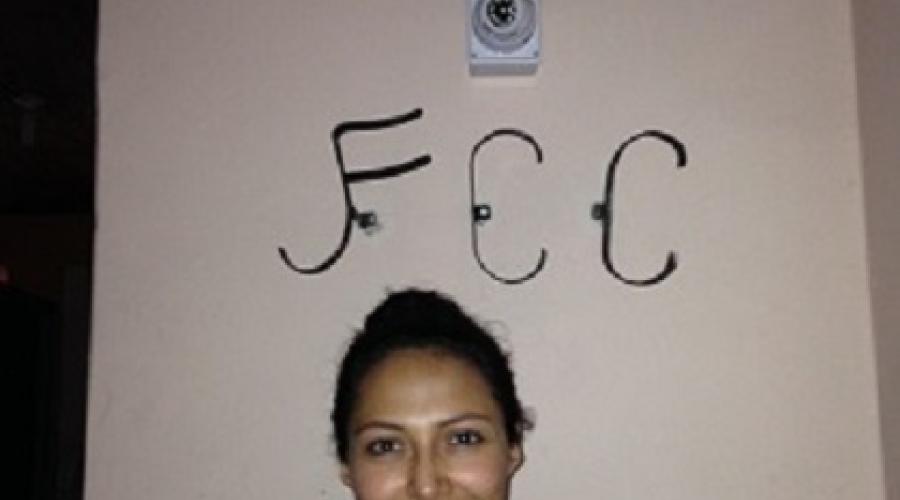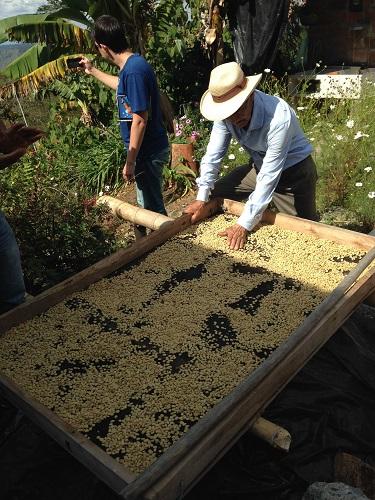
Nidy Hamue-Munoz
In January 2015, I spent two weeks working with coffee producers in Colombia as part of the Cornell Student Multidisciplinary Applied Research Team (SMART). We worked with the Federación Campesina del Cauca (FCC), a not-for-profit organization that has over 700 coffee-producing associates. These coffee producers are all micro landowners whose main source of income is the production from their farms. The organization has a strong focus on transitioning to organic production, promoting the production of high quality, ‘specialty-level’ coffee, and it also provides holistic training to improve producers’ quality of life and sense of community.
I was part of a diverse and multidisciplinary team with members from Colombia, France, Tunisia, the U.S., and Mexico. Our project had four main objectives: develop a cost analysis, communicate soil quality reports, conduct experiments to identify coffee producers’ risk profiles, and develop an organizational analysis to help improve communication and quality standards. Although I was involved in all aspects of the project, it was my role in the team to co-lead the organizational analysis. I found this to be an ideal opportunity to apply some of the frameworks and lessons that I have learned as part of the MILR program.
To perform this analysis, I conducted several semi-structured interviews with different members of the organization and with individual producers. I also had the opportunity to observe a training session for 75 producers about quality standards and procedures, and I sat in a board meeting to observe the members’ leadership, communication, and decision-making processes. Moreover, I had the opportunity to visit several coffee farms including organic farms that had recreated a natural diverse environment for the production of coffee. In order to be able to understand the daily work of these producers, I learned the entire coffee production process, from planting a coffee seed to fertilizing, identifying ripe beans, harvesting, washing, fermenting, drying, and roasting.

This trip allowed me to learn about the coffee industry in a developing country and the different types of work, workers, and organizations involved in the coffee industry. I had not had the chance to learn about agricultural businesses and workers in class, and this was a fantastic opportunity to broaden my understanding of this type of work and these types of organizations. Moreover, I had never visited a country in South America, which was in itself an amazing experience. I met brilliant people, made dear new friends, visited various towns, and tried a number of local and delicious foods.
I am very grateful to have had the opportunity to learn about this fascinating field and to have visited beautiful Colombia. There is a lot to learn and do within the agricultural business sector in developing countries, especially related to organic production and the international commercialization of agricultural products. Particularly interesting are the forms of organization that small producers have developed to be able to participate in international markets. Gender roles comprise a major part of the division of labor and present interesting challenges to equity in developing countries. Lastly, it was exciting to learn about the role of international organizations and certifications in the trade and production conditions for these workers. I now have these newfound interests, and I look forward to undertaking future work and research in these areas.
This wonderful experience would not have been possible without the support of the ILR International Travel Grant. Thank you!!